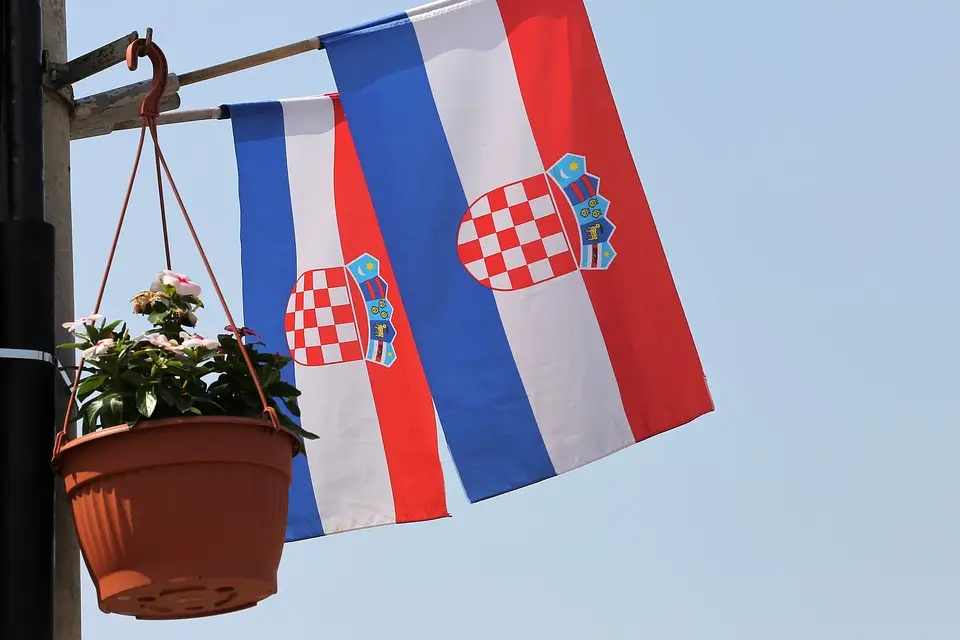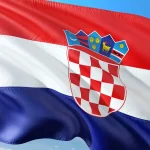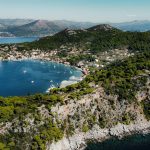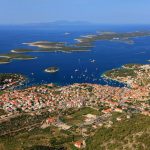As Poslovni Dnevnik/Lucija Spiljak writes, among the global companies that presented their technology solutions in Las Vegas at the world’s largest consumer electronics fair – Consumer Electronics Show (CES), there were several Croatian representatives among more than 2,000 companies from across 160 countries.
In addition to Iron Bull, Orqa, Sportreact, Codelab and Zuluhood, two Croatian startups created in Novska at the Pismo Business Incubator – Grow and Hiroma Design – presented their innovations and products, as well as their further business plans.
“We want to achieve our goal – to help deaf people see all of the words they can’t hear,” said Josipa and Kristijan Bencek, who officially launched the Grow startup two years ago after completing their gaming training at the Pismo Business Incubator. They developed a prototype of VOICEE smart AR glasses for the deaf and hard of hearing, which they presented at EES Hearing at the recently held CES in the US.
“These are glasses that generate sound into text and print it in real time onto the lenses of the glasses in the form of subtitles or subtitles. When you look through these glasses, you feel like you’re watching a foreign movie. We’ve been researching and developing VOICEE for the last two years. We worked on the development in collaboration with deaf people, associations, as well as with hardware development experts. It’s a very extensive and complex project. We currently have a functional prototype, but we’re still working on improving it every day. We’ll soon launch a Kickstarter campaign so that our second prototype can be released on the market,” revealed Josipa Bencek.
Presenting the product among the largest technology manufacturers in Las Vegas was a significant experience for the Croatian startup Grow, which, as Josipa said, motivated them to present their product to the best of their ability, as well as to network and find potential partners for their further work.
“Regardless of the technology presented at CES, there was really great interest in our smart glasses. Continuous visitors around our exhibition space soaked up our every word. We were a little surprised ourselves, but it gave us a spring in our step and an incentive to do more work. We stayed in touch with some of those people and we believe that some of them were also our potential investors,” said Josipa.
A wave of positive change
Grow is based on gaming, but also products that are related to gaming, and aren’t exclusively games. Josip and Kristijan swam into the often challenging entrepreneurial waters with the desire to start a wave of positive changes in their environment and to prove that even in challenging times – they can still achieve what they want.
The support of Novska’s Pismo incubator was important for them, where they had access to mentors, various workshops for improving entrepreneurship and better networking. Through the Crown project organised by the Sisak-Moslavina County Development Agency with partners from cross-border cooperation, Grow won the award for one of the best entrepreneurial ideas.
“When we talk about games, we’re based mostly on augmented reality, or AR. Given today’s ubiquity of technology, we use games for educational purposes, as entertainment, but also for the promotion of certain products and companies. The success of the games in these fields has been proven many times not only by us, but also by trends from outside Croatia. In addition to games, we also offer gaming education. We educate children and adults on how to produce video games and introduce them to the gaming industry. We’ve developed education in two fields. The first is programming, where students learn the basics of programming and the use of programming tools that are adapted to their age group. The other field is graphics. Participants in this training learn how to create graphics, animations or models that are used in the production of games, so they can implement their own ideas into the game and thus completely personalise it,” explained Bencek.
Of the projects related to gaming, their educational game for Lonjsko polje with an emphasis on indigenous animals stood out the most. There are two of them in the team, Josipa and Kristijan, but they’re also cooperating with associations and experts from various fields, and with the increase in the volume of work, they expect employment to begin shortly.
Their clients come from various fields of business, and so far they have worked for A1 Telekom/Telecom, Hrvatska posta/Croatian post, Coding Giants, the Simora agency, and Lonjsko polje itself. They are also cooperating with some foreign companies and Croatian franchises, and they believe that there will be more because they are still young in the market.
“This year has just begun, but we’ve started it in full swing. With education, games and VOICEE, we expect this year to be even more successful in business than last year. Our next big goal is the success of the Kickstarter campaign, and our further steps are focused on the successful completion of the projects we’re working on and even more successful agreements on new projects. We also hope that we will be recognsed by foreign investors and with our personal development we’ll start the development of new people in our community,” concluded Josipa Bencek.
When it comes to other Croatian startups, Stefan and Mateja Vedrina founded the Hiroma Design startup three years ago, in which they create video games, 3D projections and augmented and virtual reality applications. They especially stood out with their educational application for children, Moopies, on the topic of waste sorting and environmentally positive behaviour, which they presented at CES.
“It’s true that children today spend a lot of time in front of screens, but in our application we have a solution to this problem. The focus of the Moopies project is an educational application for children in which children learn without even being aware of it. The innovation of our product is that we put the child in the position of a teacher, not a student as is the practice in our competition. Moopies are cute little monsters that fall to planet Earth, and a child embarks on a learning adventure with one of them. The child, along with a Moopy, then learns about the knowledge of our planet like maths, foreign languages and colours. As the Moopy learns, it evolves. When downloading the app, the parent determines how long their child will play the game.
After this period, Moopy, with whom the child is currently playing, goes to sleep and they can continue the game only the next day. In addition, the application will be accompanied by content that is thematically related to the application, ie merchandise; soft toys, a catalog with pictures, tablet pens, and T-shirts,” Vedrina explained.
Hardworking and ambitious Croatian startups
They added that the reactions of visitors at CES gave them additional motivation and self-confidence, and they were approached by numerous distributors, potential associates and investors.
“We’re already working with some distributors to distribute our merchandise. We received some great feedback and interest from all age groups and occupations. The visitors were also delighted because the application uses augmented reality so that 3D models of the Moopies can be seen through the screen of the device above the thumbnails in the album,” pointed out Stefan Vedrina.
He and his wife Mateja decided to venture into the world of Croatian startups after completing a six-month training session in video game production – Unity and Blender – in order to move more easily in the foreign and domestic markets of the gaming industry. Prior to that, Stefan completed his studies at the Technical Polytechnic in Zagreb, while Mateja received her Master’s degree in sculpture from the Academy of Fine Arts, and switched from traditional sculptures to digital ones. Today, Stefan is the main programmer at Hiroma Design, and Mateja is the main 3D/2D artist.
Although the two of them are the only employees, they’re working with eight other experts on their current Moopies project, and as the project is extensive, they plan to hire more people to complete the necessary staffing for further development. So far, their focus has been mainly on the domestic market, but they are increasingly expanding beyond the borders of Croatia, where, as they pointed out, they are becoming more and more recognisable.
Their clients are mostly cities, institutions and associations, but they also have a few private clients in the form of companies. At the end of last year, they agreed on work related to the production of video games and augmented reality applications that will be used in some cities in Croatia.
For more on Croatian startups, check out Made in Croatia.










